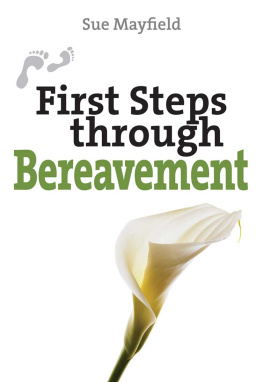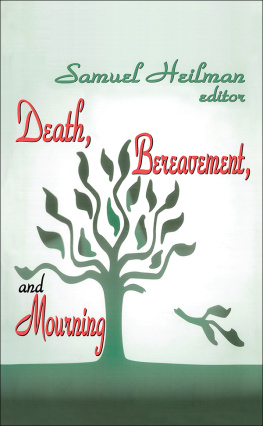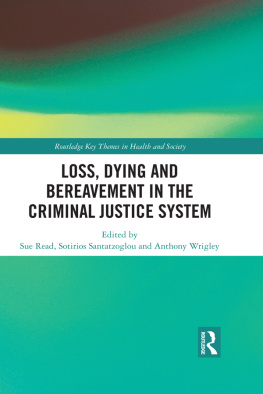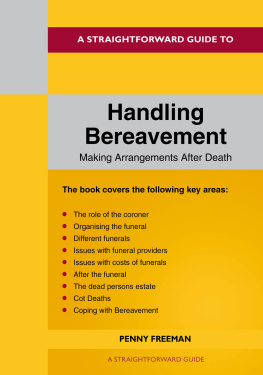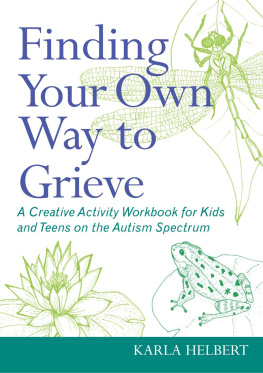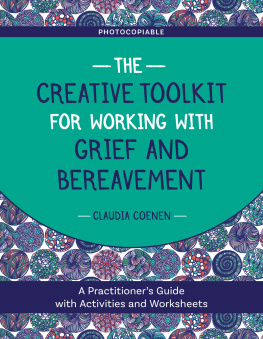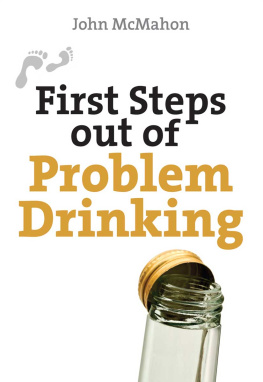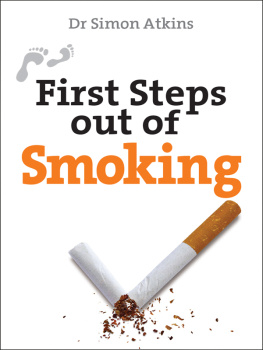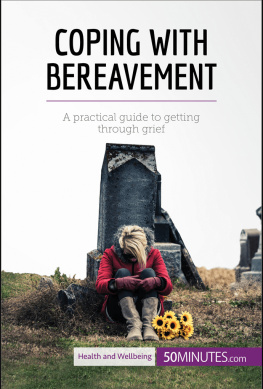First Steps through Bereavement
Why this book?
Have you, or has someone you know, recently suffered a bereavement?
Do you find yourself:
- Feeling isolated?
- Thinking no-one understands what youre going through?
- Worrying that youre not normal?
- Wondering when youll begin to get over it?
Bereavement can affect you in ways you never expected and can leave you with an alarming range of emotions.
This book explains:
- The ways in which someones death can affect you.
- How everybody grieves differently.
- How feelings of anger, guilt, or exhaustion are normal.
- Practical things you can do to look after yourself and others.
This book will help you take first steps to survive, cope, and stay healthy as you work your way through bereavement.

Copyright 2011 Sue Mayfield
This edition copyright 2011 Lion Hudson
The author asserts the moral right to be identified as the author of this work
A Lion Book
an imprint of
Lion Hudson plc
Wilkinson House, Jordan Hill Road,
Oxford OX2 8DR, England
www.lionhudson.com
ISBN 978 0 7459 5535 3 (print)
ISBN 978 0 7459 5970 2 (e-pub)
ISBN 978 0 7459 5969 6 (Kindle)
ISBN 978 0 7459 5971 9 (pdf)
Distributed by:
UK: Marston Book Services, PO Box 269,
Abingdon, Oxon, OX14 4YN
USA: Trafalgar Square Publishing, 814
N. Franklin Street, Chicago, IL 60610
USA Christian Market: Kregel Publications,
PO Box 2607, Grand Rapids, MI 49501
First edition 2011
10 9 8 7 6 5 4 3 2 1 0
First electronic format
All rights reserved
Acknowledgments
Poem on p. 41 taken from Collected Poems by Elizabeth Jennings, published by Macmillan.
A catalogue record for this book is available from the British Library
Cover: Sprint/Corbis
Contents
Introduction
All of us, at some point in our lives, will face bereavement. Although loss, death, and mourning are a normal, universal part of being human, for those going through it bereavement can be sheer hell.
Bereavement:
- can be isolating and lonely
- can give rise to a bewildering cocktail of emotions
- can affect you on many levels physical, psychological, social, spiritual, and emotional
- can be difficult to talk about, even taboo.
The way we experience bereavement will be different for all of us. Its uniquely personal. There is no blueprint for how to do it and there are no rules about what is appropriate or normal.
If you are bereaved:
- you may feel completely derailed and unable or unwilling to function
- you may be unable to eat, unable to make decisions, filled with remorse, consumed with rage.
But its just as likely that:
- you will be blank and exhausted, hardly able to get out of bed in the morning, confused, or guilty that you feel no emotions whatsoever
- you may be carrying on as before, seeming to the outside eye to be coping, behaving as if nothing has changed, and yet, in private, falling apart
- you may be wondering when it will all hit you, because so far nothings quite sunk in and you feel completely unaltered.
However it affects you, one thing is certain: bereavement is unavoidable. There is no way round it. It may be messy, ugly, and debilitating, and well-meaning friends might seek to take your mind off the pain for a while, but unfortunately no one can do your grieving for you.
What people say
Getting through a bereavement is like riding a bucking bronco its all we can do to keep our fingers gripped to its mane. And just hope we dont fall off.
Virginia Ironside
So what use is a book?
Although bereavement is unavoidable, there are practical steps you can take to look after yourself while you are going through it. There are things you can do, or avoid doing, that might cushion you a little and make life more bearable. It may be that by better understanding what you are going through, and by reading the words and stories of others who have faced losses similar to your own, you can get a handle on things and feel less alone, less isolated less mad even. A book wont stop you from hurting but it might help you survive. It might also prevent you from damaging yourself and those around you by destructive patterns of behaviour or harsh words.
Who is this book for?
First Steps through Bereavement is for you if you are bereaved. In John Bunyans story, The Pilgrims Progress, the traveller has to negotiate his way across a swamp of despair known as the Slough of Despond. Marshy, waterlogged ground is a good metaphor for what bereavement can feel like, so it might be helpful to view this book as a series of stepping stones across the swampy and dangerous terrain of your grief. Although the idea of steps suggests a linear pathway step one, step two, step three the arrangement of chapters isnt meant to imply that you will deal with one issue and then move neatly on to the next, or indeed that you will feel as if you are progressing in any kind of measurable way. You might prefer to dip into the book at random rather than read it from cover to cover especially if you are distracted and finding it hard to concentrate. Because bereavement can feel a bit like a rollercoaster, you may find that the book helps you some of the time and infuriates you at other times. If thats the case, Im sorry. However you read it, my hope is that this book will help in some way.
- Perhaps it will keep you company so that the feeling of shared sorrow will lessen your sense of loneliness.
- Perhaps it will help you get your bearings and feel less confused.
- Perhaps it will help you feel less wobbly by reassuring you that you are completely normal.
It may give you clues about your own behaviour or other peoples. Grief is very individual, but most of us function in families. Understanding the dynamics at work when families grieve together may help you navigate your way through bereavement.
This book is also for you if you are supporting someone else through a bereavement, either informally, as a friend or colleague, or more formally, as a listener or counsellor. The section For the family addresses you specifically, with ideas of how you can help and not make matters worse.
At a loss
We most commonly associate the word bereavement with the death of a relative or friend. But other losses such as the ending of a relationship, the loss of a job, a relocation, the removal of an organ as a result of cancer, or the loss of connection with someone when they are brain-damaged, comatose, or suffering from dementia can result in similar feelings to those experienced when someone dies. You might feel bereaved even if no one has died. Although this book focuses primarily on bereavement resulting from someones death, you may find it useful if you are facing losses of other kinds.
Loss is unsettling. When someone we have a connection with isnt there any more, we feel their absence. We miss them. We miss the relationship we had with them. We miss everything they meant to us. We may be faced with significant changes as a result of what has happened, and our loss of the life-we-once-had contributes to our cumulative sense of loss. When someone we know dies, we are brought face to face with our own mortality and with the reminder that we and others we love will also die. In a culture that largely ignores the reality of death, this can leave us feeling very vulnerable.
Wherever you are, however you are feeling, and whatever the circumstances in which you find yourself reading this book, I wish you well. My hope is that First Steps through Bereavement will help you discover what works best for you, and that, having discovered this, you will be able to put it into practice.

